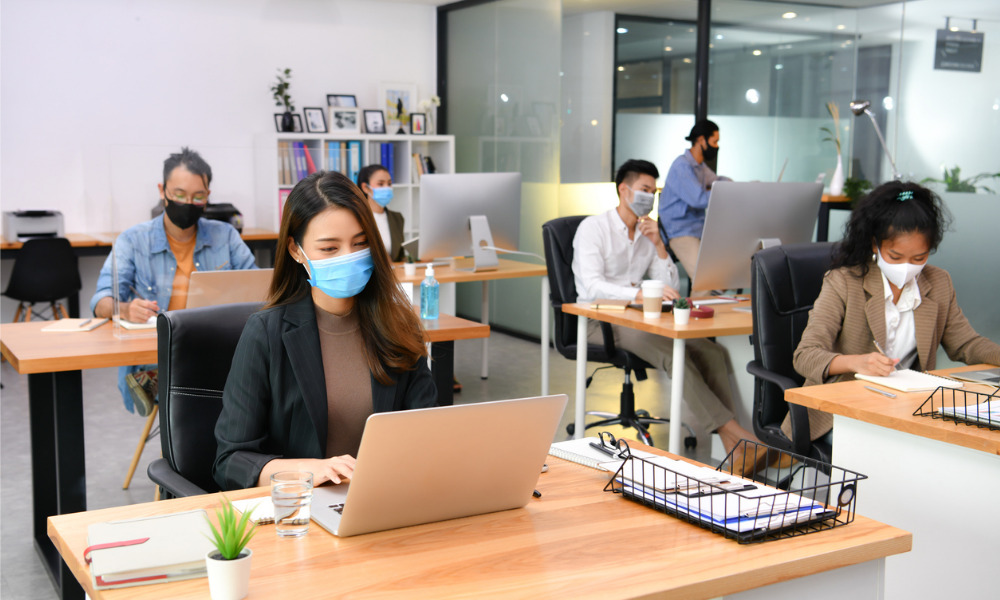
Is this the corporate world's long-awaited catalyst?

Despite their best efforts over the years, organisations have been falling short of achieving genuine diversity and inclusivity. In a global culture study by OC Tanner, only 44% of employees said their organisation’s D&I efforts felt sincere, with three in five (64%) reporting that they were straight up ineffective.
There’s hope yet. While the foundations for a more diverse and equitable work environment were built way before the pandemic, the crisis put a magnifying glass on this highly complicated issue and may help accelerate progress. A 2020 study by Kantar suggested that gender and racial disparity still exist in workplaces. A majority (72%) of employees said that D&I policies have not improved since 2019.
What’s worse, the study found that the situation seems to have deteriorated since they first ran the annual report in 2017. There seemed to be a 20% drop in perception around equal treatment between men and women at work. In 2020, only 48% agreed there was genuine equality between genders – this compared with 68% cited four years before. As for issues around race, nearly half (43%) felt they were judged by race, with a third adding that top management would only respect your work based on the colour of your skin. Kantar found that this issue was “even more stark” in multi-racial societies.
The issue may also be deeper than once thought, as findings showed that today there is even less respect to embed diversity practices in work and management style, for example by considering caretaking needs or physical ability. However, since global movements like #MeToo and anti-racism campaigns, individuals may be more aware and open to report their experiences (30%) or empowered to speak out about sexual harassment (77%).
Read more: MOM reports rise in hiring of people with disabilities
Having been in the field for over 15 years, Szen Chew, director, global talent acquisition, at Ciena said he’s seen progress. He believes leaders just need to keep pushing through. “It’s like turning a large ship, right – it’s a slow-moving process,” he told HRD. “Some of the things that we’re looking to do in terms of diversity in the workforce, certain things are happening at certain levels across the industry, but it’s almost a generational change that needs to happen.”
Read more: How to combat ageism at work
Besides sheer will for change, the massive mindset shift made since the COVID-19 crisis can lead to heaps of progress. “With the pandemic, what I’m hoping is that there’s an acceleration in opportunities for more remote working [and] flexible working,” he said. “More companies are really taking advantage of this. Ciena has always been a flexible working organisation, but obviously we’re no longer going into an office now. The concerns that managers, leaders and organisations might have had about not having a hub have sort of been eradicated a little bit with the success of remote work and continued productivity of the workforce.”
With flexi work becoming the norm, he’s confident it’ll open up more job roles to a wider population base. “I hope the future of work will create more opportunities,” he said. “The fact that we may have more location-agnostic roles and more flexibility means that we should be able to hire a more diverse set of people based on location, age, or background. [Identities] should pay less of a decisioning if someone doesn’t have to get to the office and live in that country or city. I’m hoping that will create a wider spread of talent.”
Read more: Is hiring for culture fit a bad idea?
When asked for advice on how to leaders can drive real change, the first thing he said was this: “There’s really no easy fix.” Leaders now have access to resources on “leading practices” like unconscious bias training and employee resource groups. But while they can lead to “very visible and compelling impact”, it’s not a magical solution to a deep-rooted issue.
“Don’t make the mistake [if you] implement them, that that’s the ultimate game changer,” he said. “Because if they’re implemented prematurely or ineffectively, they’re not going to make a big difference at all. Without the appropriate processes and reinforcing mechanisms, those initiatives are unlikely to create lasting change within the organisation.
“I think unconscious bias training and employee resource groups can be very powerful practices, but they can’t succeed in isolation – they need constant watering, constant attention, and be supported in other facets. And I think that there is a need to build a strong D&I foundation and provide the support systems that really embed practices to advance inclusion in the workplace. That inclusion piece is critical to allow for diversity.”